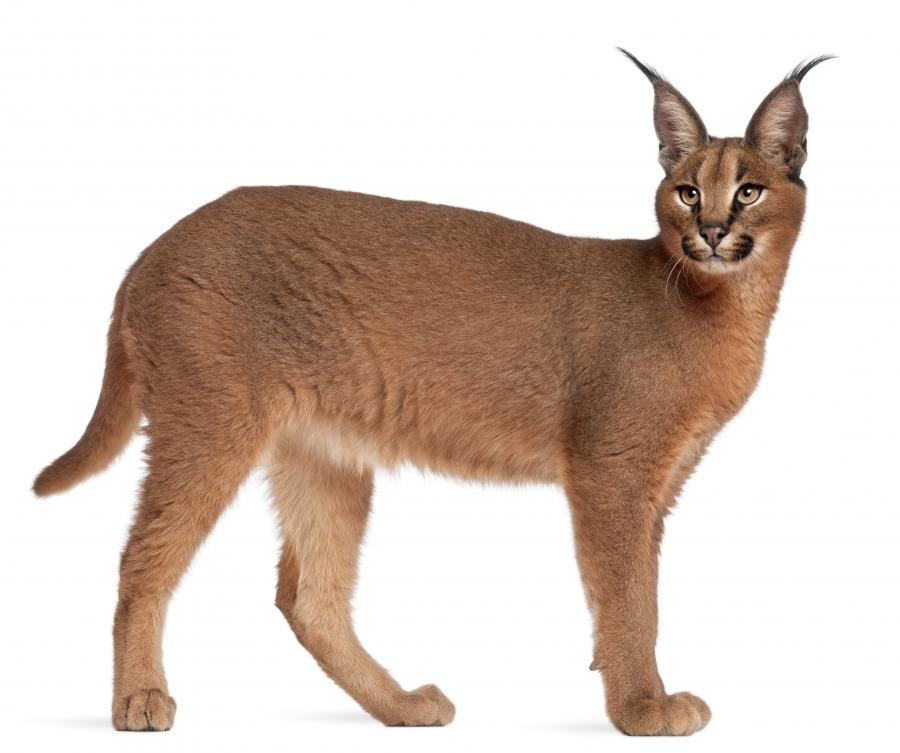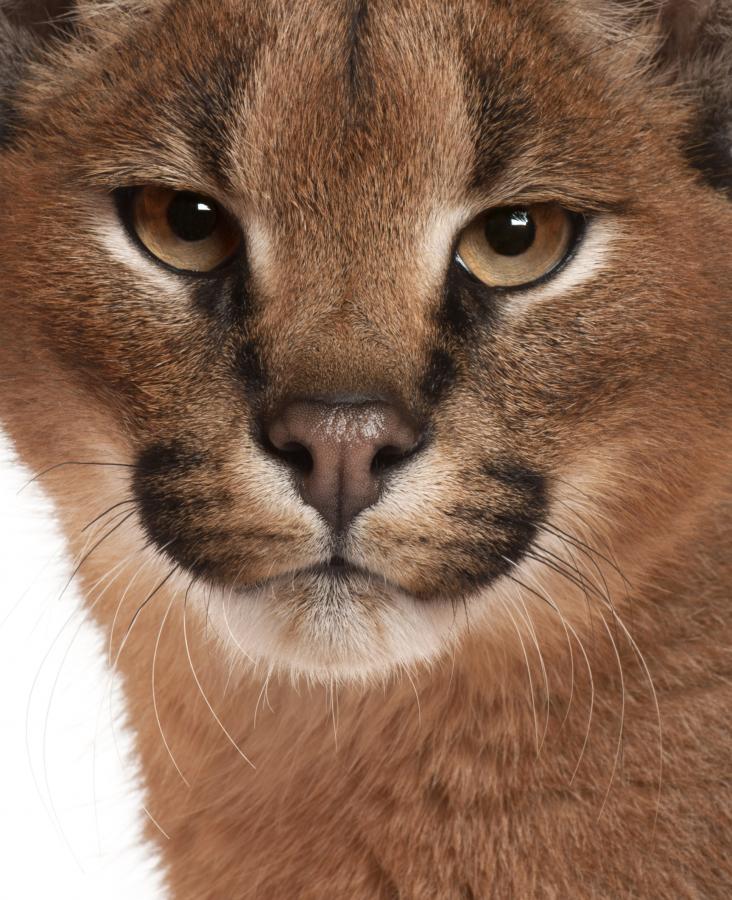This is not a cat, this is a Caracat!
The Caracat is a hybrid breed resulting from the marriage of a domestic cat and a small wild African feline, the Caracal.
The Caracat is a new breed that is still relatively rare. There are currently only a few breeders in the world working on it. We are very proud to contribute to it.
The first known hybridization between a cat and a Caracal would have happened accidentally, in 1998, in a zoo in Moscow. A Caracal-like kitten would have been born from the illicit love affair between these two felines of different species. Subsequently, a handful of breeders worked to produce cats resulting from this hybridization, mainly using Abyssinians, whose wild appearance reminds that of the Caracal, but also other breeds of cats including the Maine Coon and even domestic cats.
When it comes to his behaviour, the Caracat is an intelligent and active cat. Very attached and loyal to his owner, however, he has a lot of character and energy, like all hybrid cats. The Caracat is a cat who likes to move and needs a lot of physical and psychological stimulation to thrive.
The subject of hybrid cats is causing a lot of ink to flow. In some countries they are even banned. Thus, we cannot deny the fact that to produce these unique cats, it was necessary to take wild felines from their natural habitat. This is not without consequences, both at the individual level and at the collective level, and ethical questioning is necessary.
First, it is important to remember that hybridization between species is a phenomenon that occurs from time to time in nature. Although it comes with challenges, we believe it is possible to build hybrid cat breeds in an ethical and responsible way.
Finally, we would like to emphasize that we do not encourage the possession of wild cats without a specific purpose. They are not pets. In view of the development of a new breed of hybrid cat, the contribution of wild felines is only temporary. The objective of the breeders is indeed to manage to produce a unique breed of domestic cat.
It is not always easy to understand the terms used when it comes to hybrid cats. To help you have a better understanding, here is a brief description of the terms used to define the various generations:
F1 = A hybrid cat that has 50% domestic cat blood and 50% blood from another feline species.
Subsequently, the letter F is followed by the number which represents the number of generations separating the cat from its ancestor of another feline species. Usually, the F5 and older generations are considered equivalent to other domestic cats in terms of behavior and needs.
The term SBT, which stands for Stud Book Tradition, implies that the cat is descended from at least three generations of Caracat without the involvement of a Caracal or a cat of another breed.
Regarding hybrid cats, it is important to mention that the first generations remain very close to their wild ancestors. Not only can their behavior be unpredictable, but their feeding and care needs are unique and expensive.


